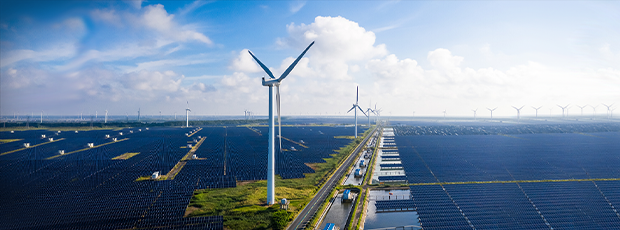Financing The Green Transition in Asia
Supporting a more sustainable model will need united effort from multiple stakeholders, says Simon Ong, Global Head of Financial Institutions Group at DBS Bank

PENSION funds are leading the drive among institutional investors towards sustainable investment. The assets under management (AUM) of the largest 300 pension funds globally stood at $23.6tn in 2021. Of this, Asia Pacific comprises 25.5% of AUM, having registered 8% annualised growth between 2016 and 2021.
Given their sheer weight and strong growth, pension funds can steer global institutional investment. Pension funds have increasingly aligned themselves with the sustainability agenda and supported the green transition. Green and transition taxonomies in Asia provide clear direction for pension funds to invest sustainably while mitigating the risk of greenwashing.
As macroeconomic headwinds gathered, a greater share of institutional investors is partaking in sustainable investing, increasing to 89% in 2022 from 76% in 2021. Moreover, 44% of institutional investors are considering how to incorporate climate or sustainability within their asset allocations, while 24% already do. Across regions, a larger share of investors in Asia (72%) prioritise broader environmental considerations compared to those in the Americas (53%) or Europe, the Middle East and Africa (48%).
Mitigating risk is one of the key reasons for this mindset change. But there is urgent action required to support the green transition. This is an area in which pension funds are leading the change.
The green transition push is seen across financial markets, with bond issuers and lenders looking to facilitate investments in clean technologies and decarbonisation. This is now a core strategy at Singapore-headquartered DBS Bank.
As one of the largest lenders in Asia, DBS is intimately familiar with the economic environment its clients operate in and mindful of the nuances involved in striking the balance between economic growth and returns, and sustainable outcomes. DBS provides a gateway for institutional investors — that may not be particularly familiar with Asia — to access the ESG investment and lending opportunities in the region. In addition to direct financing using its balance sheet, via ESG bonds, DBS aims to also unlock institutional investors’ balance sheets and channel more capital market financing towards sustainable and climate-resilient projects and businesses.
For the first ten months of 2022, DBS has helped clients raise over S$24bn in funding for various ESG purposes, a 26% year-on-year growth over the same period in 2021, in what has been an unfavourable year for bond issuances characterised by particularly challenging macroeconomic conditions.
In the past five years, the bank has helped its clients raise about S$65bn in funding via ESG bond issuances at a CAGR of about 55%. Notable transactions include raising S$2.4bn on a 50-year transaction for the Singapore government in the inaugural Singapore sovereign green bond issuance, which also marks a milestone for being the longest-dated green bond ever issued by any sovereign entity; assisting the State Grid International Development in its inaugural offshore green bond issuance of S$350m; and helping Greenko tap the international green bonds market to raise S$750m for its operations.
Additionally, DBS published its sustainable and transition finance framework and taxonomy in 2020, which forms the bedrock for the bank to engage with clients who are furthering their sustainability agenda. In May 2021, DBS partnered with Singapore Exchange, Standard Chartered and Temasek to set up Climate Impact X, a global exchange and marketplace for the trading of tokenised high-quality carbon credits.
Separately, DBS is engaging with clients to help them decarbonise their operations through its lending. The bank set decarbonisation targets for seven sectors — power, oil and gas, automotive, steel, aviation, real estate, and shipping. Data coverage targets have also been set for two sectors - food and agribusiness, and chemicals - paving the way for future emission reduction targets.
Responsible investing in Asia will be driven by a regulatory push on environmental and social objectives, and a strong focus on sustainable finance. Governments in the region are accelerating and intensifying efforts to achieve net zero goals, which support the need for climate financing.
Supporting the green transition will need united effort from multiple stakeholders. A combination of technological innovation, business willingness and supportive government policies will help its acceleration. Driving these changes will be institutional investors, including pension funds.
This article first appeared in OMFIF’s Global Public Pensions Report, available to download at omfif.org/gpp2022.


